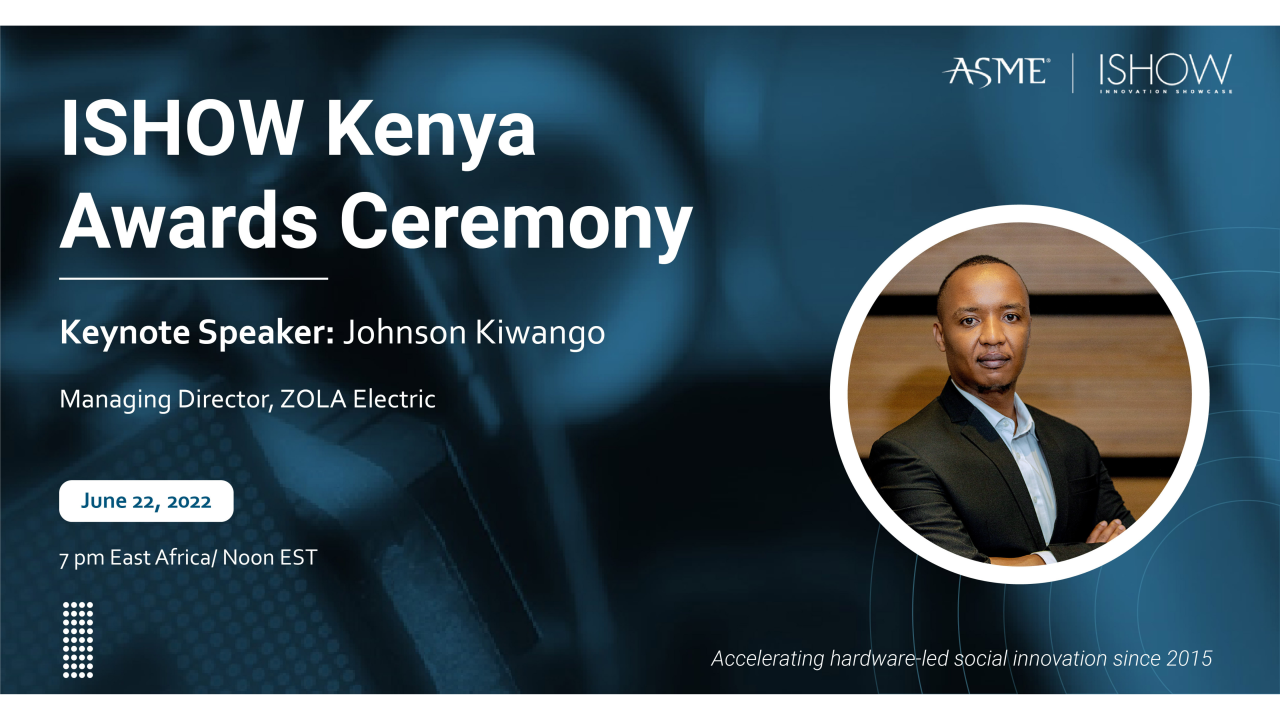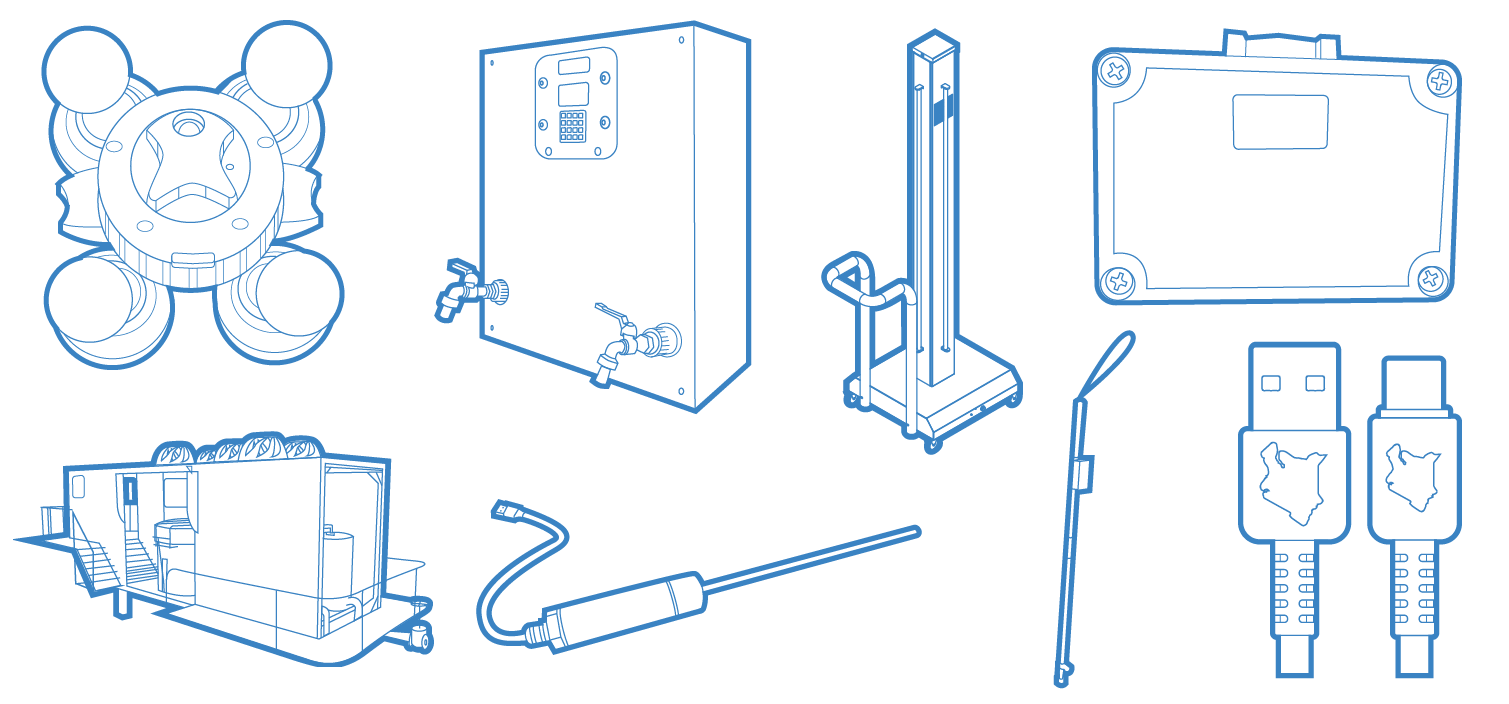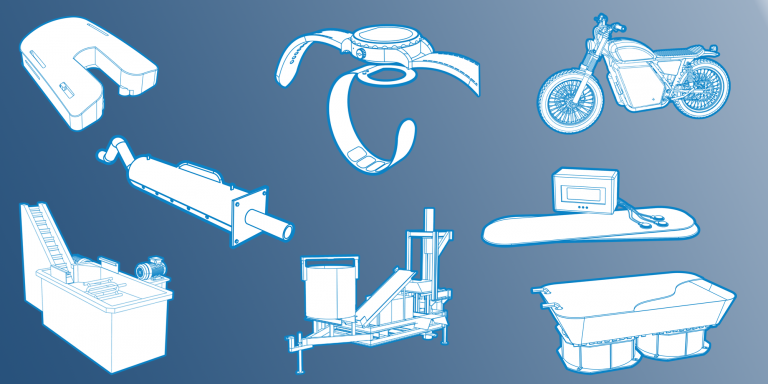Editor’s note: The following is adapted from a press release.
Register now to view ISHOW Kenya’s virtual awards ceremony, June 22 at 7pm EAT
A non-invasive screen for respiratory disease, a smart walking cane, UV sterilization for clinics in low-resource settings and diesel from plastic waste count among the eight finalists in the American Society of Mechanical Engineers (ASME) Innovation Showcase (ISHOW) Kenya, ASME announced June 10th. ISHOW Kenya is one of three regional events that make up ISHOW 2022, ASME’s international accelerator of ‘hardware-led’ social innovation. The hardware distinction means eligible innovations can include software, but their salient feature must be a tangible, physical product that meets basic needs among underserved populations. Each year, ISHOW is held in three regions: India, Kenya and the United States.
Meet the Winners of ISHOW India 2022
On June 22nd, ISHOW Kenya will announce three winners from the eight finalists who will vie for a share of (USD) $30,000 in seed grants and technical support to help bring their design innovations to market for the benefit of underserved communities. Judges and facilitators include experts in research, mechanical engineering and product design, manufacturing, software development, startup financing and business planning.
Introducing ISHOW Kenya’s finalists
MamaOpe Medicals (Kampala, Uganda) for its “MamaOpe” solution – a non-invasive tool designed to screen for respiratory diseases accurately and automatically, with a special focus on pneumonia, in low resource settings using patient vitals, providing instant feedback to support the care provider in determining a correct diagnosis based on the World Health Organization guidelines for Integrated Management of Childhood Illness. Clinicians can use patient data uploaded to the cloud in remote consultation or telemedicine applications.
Matica Limited (Kampala, Uganda) for its “ReadySuite” – a safety-tested, patent pending, low-cost and durable laparoscopic system that does not require a constant supply of consumable items or electricity. Clinicians can display images on a typical laptop computer with battery backup, preventing loss of function during power-outages and at a fraction of the cost of current technology, making laparoscopic surgery available in low- and middle-income countries.
Polystar Nanotech Ltd. (Kigali, Rwanda) for its “Viscane” – a trackable electronic walking cane and inclusive IoT digital assistant for visually impaired people that helps them detect obstacles 60-200cm ahead, get weather information, and provides trackable GPS/GNSS (geofencing) coordinates, helping them to be found when lost or locate the cane if stolen. Day and night recognition with magnetometer capability of the cane helps them walk safely, avoiding hazardous situations, with data privacy pairable to a smart phone via Bluetooth, and featuring light-reflective foldable stainless light-weight aluminum tubes and safety lights.
Prince Automation and Innovation Company (PAIC) Limited (Nairobi, Kenya) for its “M-Shamba Digital” – a smart farming solution that integrates IoT technology in providing accurate and reliable soil/crop data to farmers in real time to help them predict future harvest patterns and take necessary actions to maximize volumes. In addition, innovations around landless and vertical hydroponics farming techniques allow for effortless water conservation by automated irrigation and recycling translating to use of only 5% of water necessary for crop growth while maintaining up to 20 times harvest volumes of food.
Pyro-degrade Energy (Nairobi, Kenya) for its “Pyro-diesel” innovation – an environmentally friendly diesel substitute produced from plastic waste for stationary diesel engines. Supplied at a lower cost than conventional diesel, Pyro-diesel is almost sulfur-free and has a low carbon footprint, with a processor able to run off-grid powered by the fuel it produces.
Simbona Africa Healthcare R&D (Addis Ababa and Jimma, Ethiopia) for its “Automated Simbona UV Sterilizer Technology to Prevent Hospital-Acquired Infections” – a cost-effective, safe disinfection approach that uses infrared technology, motion detection, and air quality-detecting systems to remove microorganisms from material surfaces and air in less than 10 minutes using environmentally friendly, chemical-free ultraviolet germicidal irradiation (UVGI).
Totosci Holdings Ltd. (Sagana-Kirinyaga County, Kenya) for its “Totosci USB Chargers” – Android, iOS, and feature mobile phone USB chargers that are reliable, convenient, affordable, and locally made.
Ubuntu Waterhub Africa Ltd. (Nairobi, Kenya) for “The Waterhub” – a solution for revenue collection at water points using both cellular and satellite IoT technology.
“We are proud to offer a forum for engineering problem-solving that truly improves lives,” Tom Costabile, Executive Director and CEO of ASME. said in a statement. “We are continually impressed by the creative talent of ASME ISHOW participants and their passion for helping underserved communities around the world.”
Johnson Kiwango, Managing Director of ZOLA Electric, will present the keynote address at the ISHOW Kenya awards ceremony June 22nd. Zola is a leading technology company serving more than 1 million users across three continents.
In addition to the three regional winners, the product with the most votes in social media for each regional event will be named the “Fan Favorite,’’ and those finalists will receive $1,000 each. Follow @ASMEishow on Twitter for more details. The fan favorite prize is made possible and in memory of Byron G. Schieber Jr. M.S., PE, Professor Emeritus QCCNY, and Ruth L. Schieber.
ASME hosted ISHOW India online in May and will host a virtual ISHOW USA for finalists from the Americas, July 19-27.
To date, ISHOW has enabled over 180 startups from more than 30 countries to solve critical quality-of-life challenges for vulnerable populations worldwide. ISHOW alumni have developed affordable devices to address issues including clean combustion, crop threshing, fetal health, food waste prevention, health diagnostics, safe drinking water, and many more that address the United Nations’ Sustainable Development Goals.
ASME ISHOW annually matches 24 carefully selected innovators with appropriate experts to ensure that the proposed hardware solutions are technologically, environmentally, culturally, and financially sustainable. ASME’s panel of judges and experts includes successful entrepreneurs, academics, engineers, designers, investors, and industry representatives from leading organizations in India, Kenya, the United States, and beyond. These subject matter experts provide technical and strategic guidance based on ISHOW’s four key pillars: customer and user knowledge, hardware validation, manufacturing optimization, and implementation strategy.
ISHOW is supported by The Lemelson Foundation and other partners around the globe. Learn more about ISHOW’s global impact in this dynamic dashboard.
Hear from the ISHOW 2021 cohort about their experiences. Follow the journeys of ISHOW alumni including PayGo Energy, PlenOptika, Himalayan Rocket Stove, SAYeTECH and others at thisishardware.org/blog.

